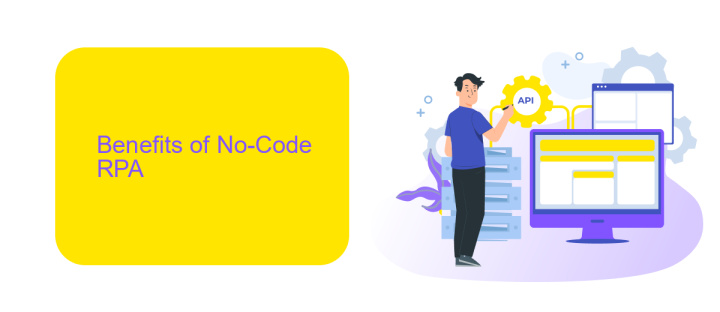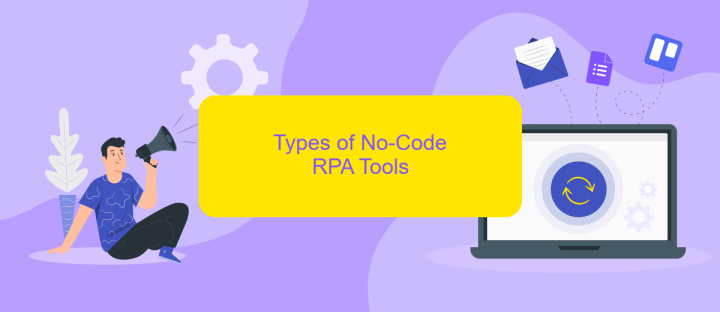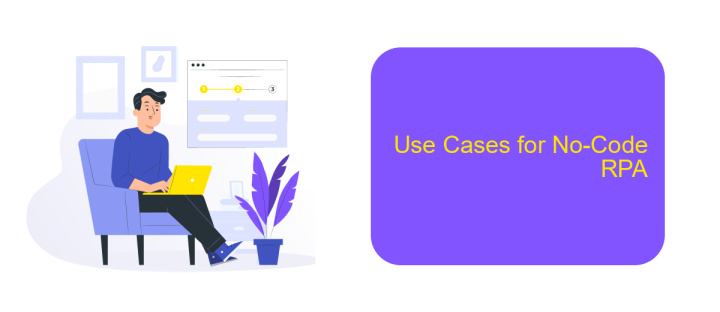No-Code RPA
No-Code Robotic Process Automation (RPA) is revolutionizing the way businesses streamline their operations by allowing users to automate repetitive tasks without the need for programming skills. This innovative approach empowers non-technical staff to create and deploy automation solutions quickly, significantly reducing costs and improving efficiency. In this article, we explore the key benefits and practical applications of No-Code RPA.
Introduction
No-Code RPA (Robotic Process Automation) is revolutionizing the way businesses automate their processes by enabling users to create automation workflows without any programming knowledge. This approach empowers non-technical employees to streamline operations, reduce errors, and increase efficiency, all while saving time and resources.
- Easy to use drag-and-drop interfaces
- Pre-built templates for common tasks
- Seamless integration with existing systems
- Cost-effective solutions for businesses of all sizes
One of the key advantages of No-Code RPA is its ability to integrate with various applications and services effortlessly. Tools like ApiX-Drive facilitate these integrations by providing a user-friendly platform to connect different software systems without writing any code. This not only simplifies the automation process but also ensures that businesses can quickly adapt to changing technological landscapes.
Benefits of No-Code RPA

No-Code RPA (Robotic Process Automation) offers numerous benefits, making it an attractive solution for businesses of all sizes. One of the primary advantages is the ease of use, as it allows non-technical users to automate repetitive tasks without the need for coding skills. This democratizes the automation process, enabling employees from various departments to contribute to efficiency improvements. Additionally, No-Code RPA significantly reduces development time and costs, as it eliminates the need for extensive programming and debugging efforts.
Another key benefit is the seamless integration capabilities with various systems and applications. Tools like ApiX-Drive facilitate these integrations, allowing businesses to connect their existing software and services effortlessly. This ensures a smooth flow of data across platforms, enhancing overall operational efficiency. Furthermore, No-Code RPA solutions are highly scalable, enabling organizations to start small and expand their automation efforts as needed. This flexibility ensures that businesses can adapt to changing requirements and continue to optimize their processes over time.
Types of No-Code RPA Tools

No-code RPA tools are revolutionizing the way businesses automate tasks by eliminating the need for programming skills. These tools come in various types, each catering to different automation needs and user preferences.
- Drag-and-Drop Builders: These tools, such as UiPath StudioX, allow users to create automation workflows by simply dragging and dropping elements onto a canvas.
- Pre-Built Templates: Platforms like Automation Anywhere AARI provide ready-made templates for common business processes, enabling quick deployment with minimal customization.
- Integration Services: Tools like ApiX-Drive facilitate seamless integration between various applications, allowing automated data transfer and synchronization without coding.
- AI-Powered Tools: Solutions such as Microsoft Power Automate leverage artificial intelligence to enhance automation capabilities, including natural language processing and predictive analytics.
Each type of no-code RPA tool offers unique benefits, making it easier for businesses of all sizes to streamline their operations. By choosing the right tool, organizations can significantly reduce manual efforts, increase efficiency, and focus on more strategic tasks.
Use Cases for No-Code RPA

No-Code RPA (Robotic Process Automation) offers a versatile and accessible solution for businesses looking to automate routine tasks without the need for extensive programming knowledge. Companies can leverage No-Code RPA to streamline operations, reduce human error, and enhance productivity.
One of the primary use cases for No-Code RPA is data entry and migration. By automating these repetitive tasks, organizations can save time and ensure data accuracy. Another common application is customer service automation, where bots can handle routine inquiries, freeing up human agents for more complex issues.
- Data entry and migration
- Customer service automation
- Invoice processing
- HR onboarding
- Marketing campaign management
Integrating various software applications is also a significant use case for No-Code RPA. Tools like ApiX-Drive can facilitate seamless connections between different platforms, allowing businesses to automate data flow and synchronize information effortlessly. This capability reduces the need for manual data transfers and helps maintain data consistency across systems.
Best Practices for Implementing No-Code RPA
When implementing No-Code RPA, it's crucial to start with a clear understanding of the processes you aim to automate. Identify repetitive, rule-based tasks that consume significant time and resources. Engage stakeholders from various departments to gather insights and ensure the selected processes align with organizational goals. Prioritize tasks that offer quick wins to demonstrate the value of RPA early on. Documenting these processes comprehensively will streamline the automation development and deployment phases.
Integration with existing systems is vital for the success of No-Code RPA. Utilize tools like ApiX-Drive to facilitate seamless data transfer between applications without the need for complex coding. This ensures that your automated workflows are efficient and reliable. Additionally, continuously monitor and refine your RPA solutions to adapt to evolving business needs. Regular feedback loops and performance metrics will help in identifying areas for improvement, ensuring your RPA initiatives remain effective and scalable over time.
FAQ
What is No-Code RPA?
How can No-Code RPA benefit my business?
What types of tasks can be automated with No-Code RPA?
Do I need any special training to use No-Code RPA tools?
How do I integrate No-Code RPA with other software?
Time is the most valuable resource in today's business realities. By eliminating the routine from work processes, you will get more opportunities to implement the most daring plans and ideas. Choose – you can continue to waste time, money and nerves on inefficient solutions, or you can use ApiX-Drive, automating work processes and achieving results with minimal investment of money, effort and human resources.

